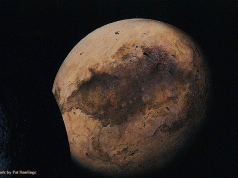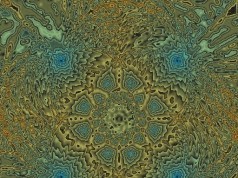”Information is physical”. Always. Of course. What else?
Yet, the mystery is far from dispelled, as we don’t know what “physical” is. We don’t know, what physics is, for sure. Some roll out the Quantum, and say:”here is physics: it from bit”. However, we are not certain of what the Quantum is (= we don’t know whether quantum theory is “complete” or not; ultimately it’s a Physical Problem, experimentally determined; Von Neumann thought he had a “formal” proof, but he was wrong).
Are there Physical Problems that are not Mathematical Problems? Or Physics Proofs that have not Mathematical Proofs? Well, at this point, there are. Take general fluid flow. Be it water inside a fluid, or a meteor going hypersonic, these Physical Problems exist, and have solutions, that the physical objects themselves are Physical Proofs. It is not clear that they have Mathematical Solutions, let alone Mathematical Proofs.
Theorems From Physics? claims that:
“mathematical theorems are not supposed to be contingent. This is a fancy philosophical term for propositions that are “true in some possible worlds and false in others.” In particular, the truth of a mathematical proposition is not supposed to depend on any empirical fact about our particular world.”
With all due respect, that’s theology. Conventional theology, so called “Platonism”, but still theology. For me Plato, and his modern parrots are seriously obsolete, and “an embarrassment, for these people are friends”, as Aristotle put it.
I can show that the proof that square root of two is irrational contains assumptions made on an empirical basis (along the lines of mn = nm, actually; similarly, the choice between Presburger arithmetic and Robinson, or Peano, or Ayme arithmetics, can be viewed as empirically driven.)
However, what is an achieved mathematical proof? Just a neural arrangement. Similar neural arrangements in the minds of noble primates called mathematicians. Thus, a mathematical proof is a physical object constructed similarly in the minds of many. So a mathematical Proof is a Physical Proof, just as the fluid in a tube is a Proof of a Physical Problem, the flow problem. And similar tubes have similar “proofs”, once similar fluids similarly flow.
So any Mathematical Proof is a Physical Proof.
Patrice Ayme
Notes:
1) Could Quantum Theory be Wrong?
(Meaning not as perfect as it is taken to be.) Actually the main objection I have against the Quantum-as-it-is is exactly the same as the objection Isaac Newton had against his own theory of gravitation: instantaneous interaction at a distance with nothing between made no sense, said Newton.
(Einstein remedied this partly by proposing that gravitation was a field propagating at the speed of light.)
2) The preceding was a comment of mine on the “Gödel Lost Letter and P=NP” site in Theorems From Physics?
And most notably the following passages: “The philosopher in us recoils dogmatically at the notion of such a “physical proof”. Imagine that someone shows the following: If P is not NP, then some physical principle is violated. Most likely this would be in the form of a Gedankenexperiment, but nevertheless it would be quite interesting. Yet I am at a loss to say what it would mean. Indeed the question is: “Is this a proof or not?”
Actually this is exactly the general method I used to prove there is a largest number. Basically, I said, if there is infinity, there is a violation of the conservation of energy principle. Oh, by the way, if you want to know, in my system, the proof of P = NP is trivial (as everything is polynomial; four words proof, so I should the Clay Prize, hahaha).





